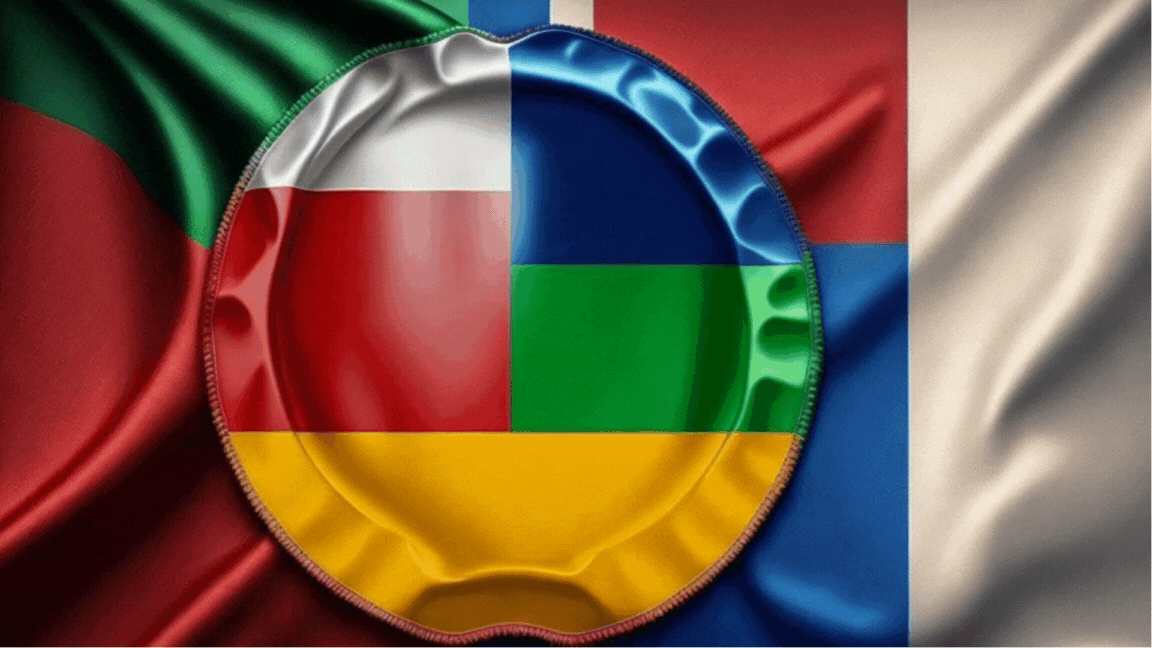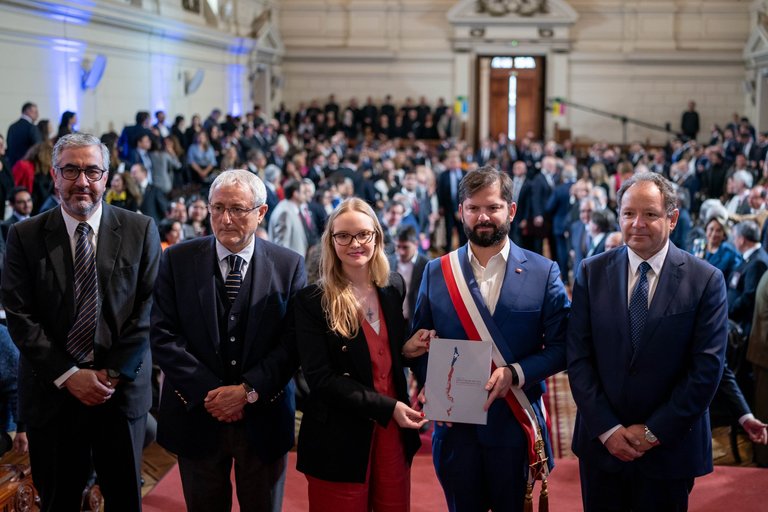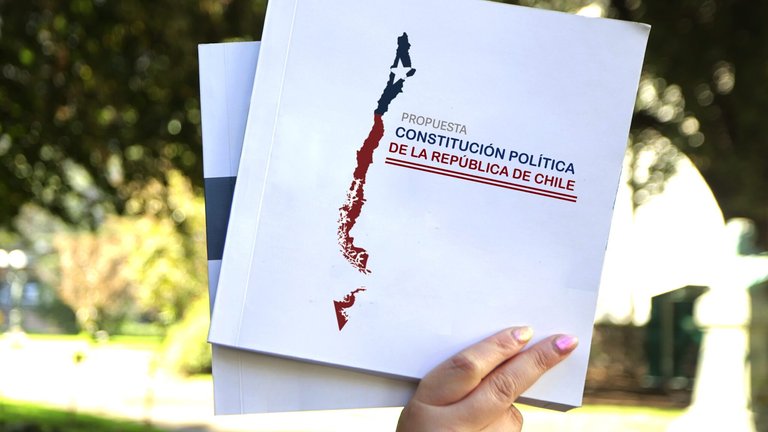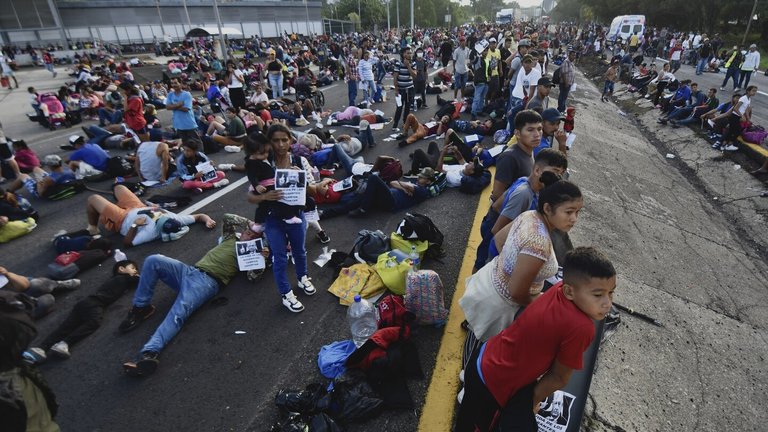
Edited with Canva.
Chile
After a first failed attempt by the left, conservatism took the responsibility—sanctified by the people—to lead the way in the elaboration of a new constitutional draft to replace the current one, which carries the sin of having been endorsed amid the bloody dictatorship of Augusto Pinochet. The strong student movement where President Boric began to make himself known in his country, and in general everything that has happened in terms of social protest in Chile in recent years—which has been a lot and strongly repressed as well—, vindicated the need to shake off an influence that seems to keep alive the ghost of that dark period. However, the left could not take advantage of the good wind in favor of Boric's victory in March last year, although it has suffered the political inconsistency of the president himself, as well as the impressive media fire coming from important tanks of the sector that seek to make it uncomfortable.
Now it is the right wing's turn to try its luck, as it won the electoral battle to coordinate the drafting body this time. And it has put all its eggs in the basket. If the first round had the spotlight on it for favoring—it was said—a constituent discourse of the extreme left, this second round is trying to set new limits to the right in the sense of occupying new spaces. In any case, it would be a matter of preserving the essence of Pinochet's constitution, now legitimized in a "democratic" era. I see some loopholes in the text that will be voted next month. For example, it says that "[each] person shall have the right to choose the health system he/she wishes to join, whether it is state or private". This means that Chileans will choose not the health system they wish to join, but the one they can, according to their capital. In the case of higher education, one of the hottest topics discussed by Chilean civil society in the last ten years, the proposal doesn't enshrine its free character, the main demand of thousands of young people.

The Chilean president received the draft of the Constitution that will be voted on December 17. There will not be a third attempt in his mandate to overcome the current Magna Carta (source of the image).
Today some mechanisms in legislation and resolutions of lower rank enable subsidies to access higher education depending on the income level of the students. But what the young Chileans have fought for is that it does not suppose financial stress for anyone gaining fair and competitive access to a university classroom. One question I ask myself, for example, is how my country, Cuba, underdeveloped, forever in crisis, attacked politically and economically by the United States, has been able to graduate thousands of students for free for so long—and continues to do so—while a nation with more natural resources and without the slightest economic sanction on its shoulders can't ensure that its young people not only have that "privilege" of enrolling at no cost but also of receiving their books and a basic level of food at no cost also. Of course, Cuba is not the only country that offers such universal and kind conditions in higher education, the interesting thing is that it does so despite its chronic economic hardship.

Source
Apart from these issues, another one that raises a lot of passion is the section dedicated to abortion. It is unlikely that the constitution will be approved according to the polls, but these attempts are useful to see the country projects of the different political forces. The draft states that "the law protects the life of the unborn", in a clear rejection of abortion, and potentially erasing the legitimacy of current legislation allowing induced abortion under three grounds: 1) non-viability of the fetus to survive outside the uterus; 2) when the pregnancy is the result of rape; and 3) when there is congenital malformation. Finally, one of the reasons why this new attempt would fail is because the same society that once embraced the idea of "change"—then there has been no consensus on what to change or how to do it—now has other priorities, which are distributed between the high cost of living and crime—there is an increase in homicides and so of the incidence of drug trafficking and criminal gangs in this dynamic. We will be attentive to the decision of Chileans in the plebiscite on December 17.
Migratory crisis
It has been a while since we commented here on this critical issue. Things have not changed, since the conditions that feed this crisis have not changed and do not seem likely to do so in the immediate or even in the medium term. The United States and Mexico have reached agreements with countries such as Cuba or Venezuela to deport directly their irregular migrants by air, a measure that should have some impact or a deterrent effect on migrants, but the need, the urgency, or the hope of a more promising economic future going north are stronger than a deportation threat. Since last week, the formation of the umpteenth caravan of migrants from the region—about 5,000 at the start—marching tight to the U.S. southern border to seek asylum has been in the news. Unfortunately, some migrants continue to repeat that they are fleeing poverty, which, as we have explained here, is not a reason to access this migratory benefit. Neither is escaping from contexts of generalized violence, as in the cases of Ecuador, Guatemala, or Honduras.

In a desperate act, the migrants blocked some federal highways for 30 hours (source).
Yesterday, Thursday, close to 3,000 migrants—the caravan has been breaking up somehow—lifted a blockade they held for more than 24 hours on a critical federal highway, demanding that they be granted official documentation to cross Mexico. One-sixth of the group accepted the authorities' response, focused on those traveling as a family unit and sick people. The rest decided to continue on their way to further deliberate the caravan's future: whether to remain united or split up. Look, these migratory mobilizations are sometimes accused of being financed by political actors in the region. That does not seem to me to be the case. They are a reflection of the chaos in which Latin America is immersed, especially the regions of Central America and northern South America. People are not stitching up their lips—literally speaking—as part of a political theater. There is something else going on here. This Thursday, moreover, about 120 migrants were rescued from the box of a trailer in the Mexican state of San Luis Potosi, where they had been left not only abandoned but locked up, in what appears to be a new case of cruel smuggling. Criminals bill but then they care little whether or not those who, in their urgency, entrusted them not only their savings, but also their lives, suffocate or not. The bulk of the migrants rescued came from Guatemala, Nicaragua, and Honduras.
Your quick regional roundup
The father of Colombian soccer player Luis Díaz was finally released Thursday by the National Liberation Army (ELN in Spanish) after more than ten days of unnecessary and unjust captivity. The historic guerrilla has lost a lot of political capital with this new blunder, which has shaken the confidence of the people and above all of the Government that it is aligned with the peace process. A joint mission of the United Nations and the Catholic Church received Mr. Diaz after his release. The ELN had said that all this was a "mistake", which I can interpret to mean that the kidnappers acted on their own, or that they certainly did not know who they were kidnapping—quite unlikely in my view. Kidnapping is a common practice of these armed groups as a method of financing.
More than 1 ton of drugs, presumably cocaine, was seized yesterday in a boat by Panamanian authorities, in a new sample of the current situation with drug trafficking here. Last year alone, nearly 140 tons of drugs were seized in Panamá.
Also there, the police have threatened to severely repress demonstrators who remain blocking streets and highways in several cities, protesting against a deal signed between the Government of Laurentino Cortizo and a Canadian mining company, accused of being unconstitutional, too advantageous for the foreign company to the detriment of national interests, and potentially harmful to the environment. It gives the local subsidiary of Canada's First Quantum Minerals the possibility to continue exploiting the largest open-pit copper mine in Central America. Two teachers were shot dead on Tuesday by a citizen upset by the blockades, which has negatively impacted the availability of food, fuel, and medicine.
Until yesterday, only 17 countries could export beef products to the United States. Paraguay will become number 18 after a rigorous review of its standards by competent U.S. authorities. From the region, we had Brazil, Mexico, Uruguay, Argentina, Chile, Costa Rica, the Dominican Republic, and Nicaragua on that list. Now half of the suppliers are from it.
And this is all for our one-hundred-fifteenth report. I have referenced the sources dynamically in the text, and remember you can learn how and where to follow the LATAM trail news by reading my work here. Have a nice day.

Edited with Canva.

Great post, man.
Thanks for your sound support and feedback man. Best regards from Cuba.
I read your post with interest, particularly the mention here:
I notice in the photo that a woman appears to be wearing a partially if not new pair of tennis shoes. The first part of your post explains all the changes attempting to be made. If the economic situation is not as the migrants state, then why leave the country when others choose to stay?
Thanks for sharing this information. Take care.
!ALIVE
Hello, a pleasure to receive your comment. Look, you have to go to the life stories of migrants. The general profile is that they come out of contexts of great poverty and violence. At least for the Central American migrant, the situation is very precarious, although this does not mean that there are no cases that simply want to live better than they do in their countries, where they are not so far behind in the reproduction of material life. This is the case of the Cubans. The Cuban migrant who goes in these caravans does not have the same reasons to migrate as the Central American, because in general, he tends to represent a kind of middle class here in Cuba. The point then that I highlighted in the part you quote is that asylum does not apply only because you are poor or because you want to live better, or even because in your country there is a lot of violence, but it is granted to those who have lived concrete situations, materialized individually, of persecution for political reasons, race, among others. Thank you again for your feedback.
Thanks for your explanation. You know, unless you are rich, every person wants to live better financially. That doesn't mean you jump up and leave your country just for that reason. I can understand other more extreme reasons if you have to flee your country.
There are millions of unemployed and homeless people in the U.S. Why South Americans think that the U.S. is this awesome land of wealth and opportunity needs a bit rethinking. Unless you live in a poverty stricken neighborhood, it takes between 800 - 1,000 USD to rent an apartment. Food prices have increased. Fuel is not cheap, together with vehicle purchases.
Thanks for sharing. Take care.
I try to explain that point to my students and colleagues, who in some cases don't believe in poverty or hunger stats in the United States. I fully agree with you. Thanks for your sound feedback on this critical issue.
Last question. Why don't they believe it? Who is telling them otherwise?
I say that there is a significant setback in the ability of people to have critical thinking and to understand the world around them without losing dimensions. Here in Cuba, for example, people are increasingly susceptible to certain influencers on YouTube based in Florida, who offer an idyllic vision of life in the United States. Where there are no poor, no one goes hungry, and so unfortunately they have an impact on the worldview that people embrace.
I see. Thanks so much. It's a sad state of affairs to mislead people. Have a good weekend.
@limonta! You Are Alive so I just staked 0.1 $ALIVE to your account on behalf of @ justclickindiva. (5/10)
The tip has been paid for by the We Are Alive Tribe through the earnings on @alive.chat, feel free to swing by our daily chat any time you want, plus you can win Hive Power (2x 50 HP) and Alive Power (2x 500 AP) delegations (4 weeks), and Ecency Points (4x 50 EP), in our chat every day.
